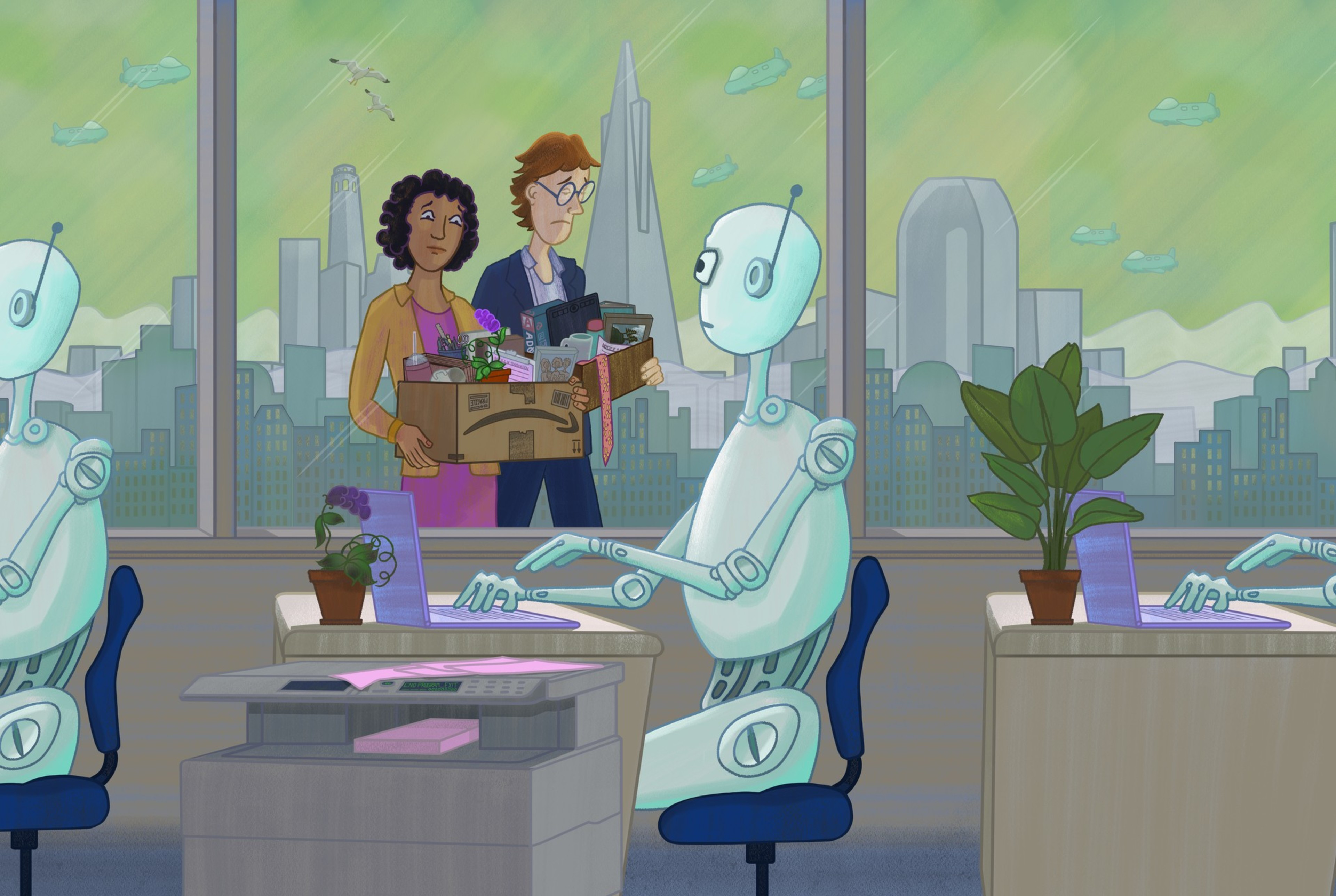How is AI changing life and work for poets, journalists and other writers? Will this new technology make scribes and wordsmiths irrelevant—or more important than ever? How are professionals embracing—or resisting—tools like ChatGPT, Claude and Bard?
Join San Francisco Standard Business Reporter Kevin Truong; Michael Nuñez, editorial director of VentureBeat; journalist and teacher Laird Harrison; and poet Halim Modi for a live conversation at Manny’s on Thursday at 7 p.m. Manny’s is located at 3092 16th St. in San Francisco’s Mission District.
This lively dialogue is presented by The San Francisco Standard and The San Franciscan magazine, which co-published a story this week on what the San Francisco AI industry boom means for the next generation of journalists, authors and screenwriters.
Tickets are $10 and can be reserved through this link (opens in new tab).
San Francisco leaders are banking on that promise to launch the city into its next boom. Mayor London Breed has declared San Francisco “the AI Capital of the World,” and boosters have hung their hopes on AI companies filling empty offices and kick-starting an economic recovery.
But no one knows how generative AI—technology that can produce text, images and other media—will ultimately change the job market and the nature of creative work. Policymakers appear to be taking an early and active role in trying to regulate the technology and head off likely massive labor and social shifts. Yet projections from some economic analysts are chilling.
A March report from Goldman Sachs (opens in new tab) found that AI could eliminate or partially automate some 300 million full-time jobs, with administrative workers and lawyers listed as two fields expected to be most affected.
That prediction was paired with optimism that labor productivity would rise in line with technological revolutions like the personal computer and reassurance that industries are “more likely to be complemented rather than substituted by AI.” The report also raised the potential for the creation of jobs and occupations that never existed before.
If you are a writer, journalist, poet, teacher or simply someone who loves the written word and is curious about its future, join us!
